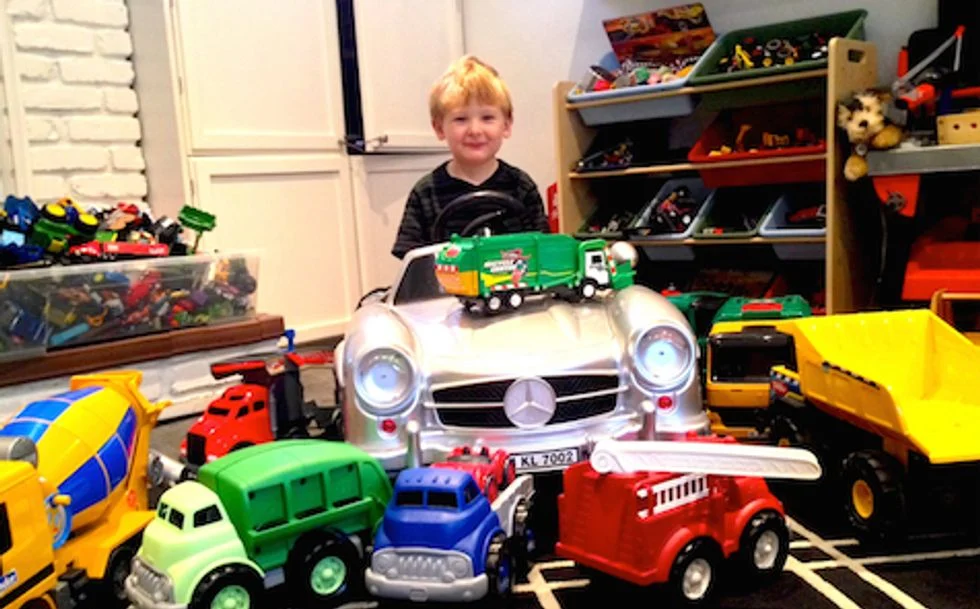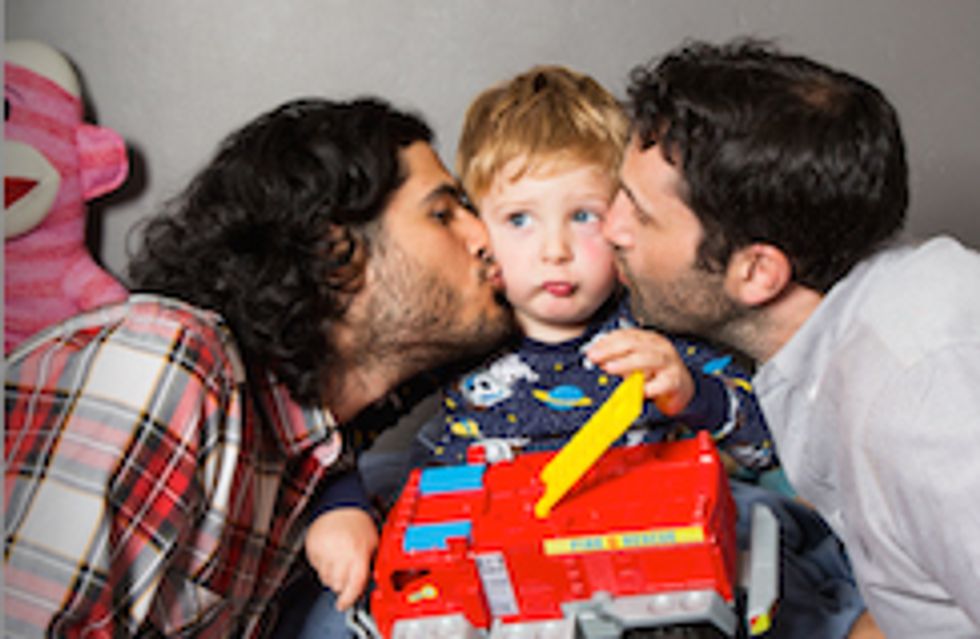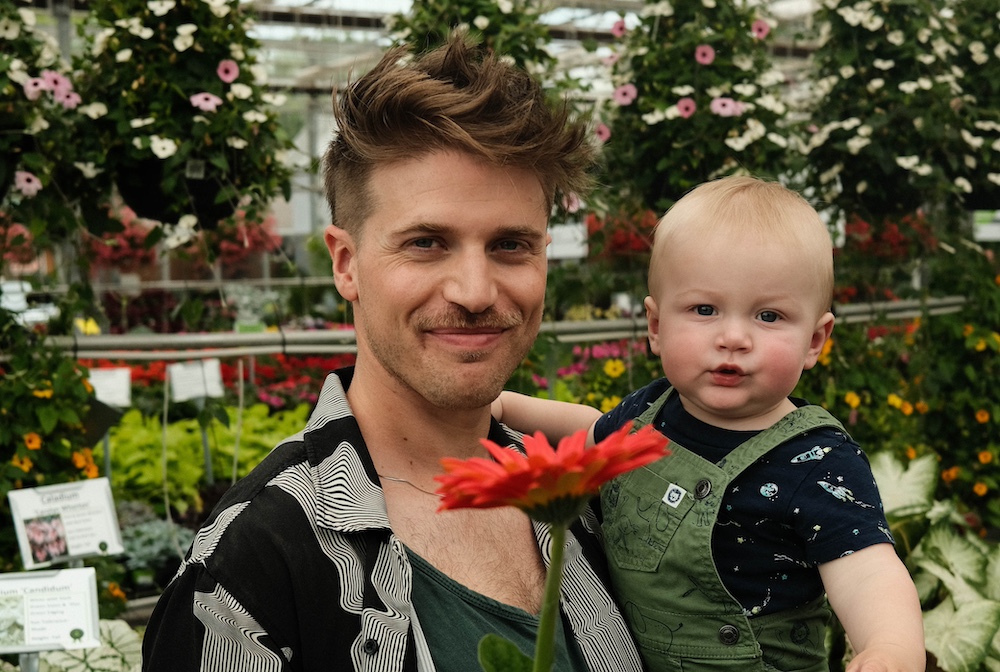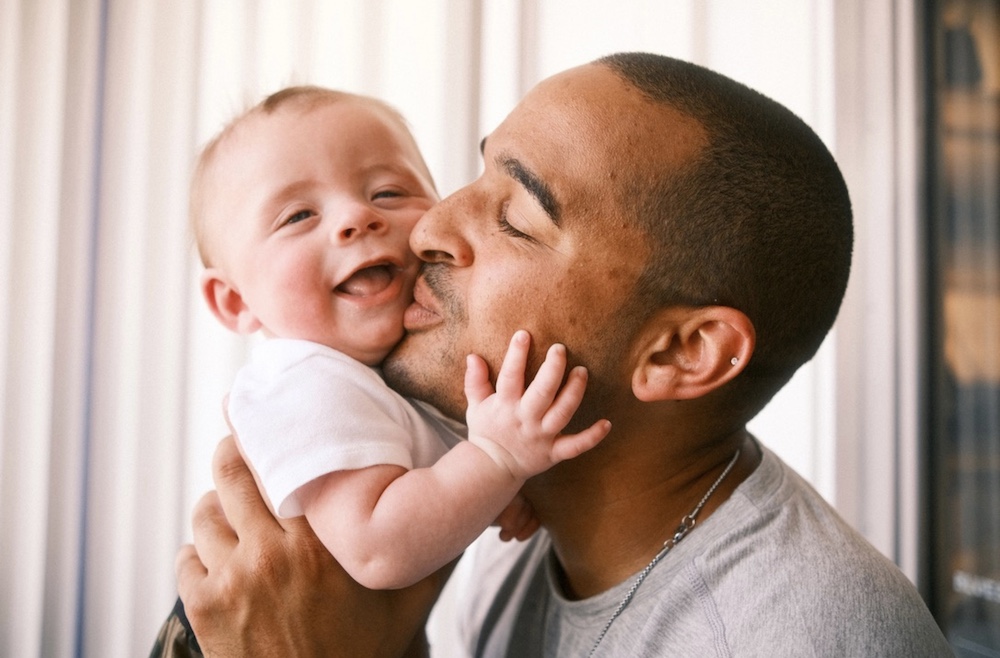HOW NOT TO RAISE THE NEXT VERUCA SALT
My son wears the pants in our family. And even though they’re Prada, we’re not proud of it.
I used to think a happy child meant a happy household. And therefore, the goal was to always keep him smiling. But now, as Maxwell’s fourth birthday nears, we’re very aware of the fact that (a) we’ve really let ourselves go and (b) our child is a spoiled brat… a loveable, genuine, funny, sensitive, compassionate, spoiled brat. But it’s not his fault. It’s ours.
Before reading any further, I ask of you one thing — try not to judge. I know that’s hard for our people, but going public with fatherly failures is even harder. Instead, take heed in our cautionary tale; our hard-earned lessons can help you break the cycle so you can be freed from the controlling spell his lordship has over you.
So now that I’ve officially taken responsibility — in writing — for spoiling our little prince, I’ve begun to wonder where it stems from. Do gay parents unwittingly spoil their kids to gain the approval they never received as children? Do we do it to make up for the material things we didn’t have growing up? Or are we overcompensating for the fact that our dual-income lifestyle limits the time we get to spend with them? Or maybe, just maybe, we’re not very good at saying no.
It’s been said that contemporary American kids represent the most indulged young people in the history of the world. But before we can wrap our heads around why kids are this way, we must first understand the pivotal role that we as parents play in their indulgence.
Here I’m going to list out five mistakes we’ve made (so far) that have helped turn Max into the lovable spoiled punk he is today. Hopefully you can learn from our blunders and begin to take back control.
#1: Gifts Are Okay If You’re Rewarding Positive Behavior
Around the age of 2, once Max was old enough to start wanting or asking for material things, we would give in too easily to his every whim. And by we I mean me. My thing was this, don’t bring a kid to a candy store and not give him a piece of candy. That was just plain cruel. Furthermore, I wanted to give my son the world and all the things I didn’t have as a child. So if we were at CVS and Max noticed some toy cars by the checkout, damn right I’d let him pick one out. Problem was by doing that once — and for no particular reason — a new standard was immediately set. It quickly became a we-can’t-go-to-any-store-without-buying-him-something ritual.
Instead of indulging your child with a toy because he sees and wants it, I now understand that you have to make them earn it. That way they’ll associate gifts as rewards for positive behavior. I know how persuasive puppy dog eyes and embarrassingly loud tantrums can be, but stick with the program. One misstep and you’ll be a sucker for life…. and not in the good way.
#2: Gifts Aren’t Okay if You’re Rewarding Negative Behavior
Max went through a separation anxiety stage where he wouldn’t let us leave for work in the morning. The only compromise that got us out of the house was a promise to bring home a small treat for him. The plan worked out great. A quick stop at the dollar store on the way home erased the morning meltdown.
But even after the detachment issues phased out, he still expected — and required — a gift every single time we left the house without him… even when we walked to the mailbox. And soon dollar store toys we’re no longer acceptable. He had to have the good stuff. Let’s just say we put Melissa & Doug’s kids through college.
We learned that accidently rewarding negative behaviors can work against you. By giving into kids when they whine and cry, you’re sending the message that tantrums and tears are the best way to get your attention, and for them to get what they want. This is called permissive parenting and it can lead to entitlement issues. Trust me… I’ve got platinum card status to prove it.
#3: Grown-Up Conversations Must Go On
When Max turned three, he picked up another not-so-fun habit. Alex and I were no longer allowed to talk to each other or other adults in front of him. And if we did, he’d butt in and scream “no talking” to the point of hysterics. We tried everything to get him to stop (tough love, punishments, we even threatened to have Dora beheaded) but nothing worked. It got so bad, we couldn’t even talk to other handsome dads at the park without him screaming for us to stop. We were so embarrassed by this that we had finally succumbed to his wishes… and, well, stopped talking and started texting. Anything to keep the terrible tot happy.
I know what you’re thinking: “How pathetic that you’d let a 3-year-old run your life.” To that I say: “Bite me.” If we hung our heads in shame every time we learned something new about parenting, we’d need a really good chiropractor. The goal is to learn from our mistakes so we keep getting better. Leave your judgments to Bravo-lebrities, where they belong.
To children, adult conversations are like foreign languages. They can’t comprehend it, so they get frustrated, especially if they hear their name mentioned. Part of having kids is having fragmented conversations, but that shouldn’t mean saying goodbye to grown-up conversations altogether.
Kids have to understand that parents are the ones in charge, not them. You can be nice about it — “Just a minute, Max, I want to finish what I’m saying to Papa, but then I want to hear what you have to say,” — but you mustn’t stop talking. By not giving in — and I know it’s hard — you’re preparing them for the real world, where they can’t tell everyone else how to behave as much as we’d all like to — I’m talking to you, Miley!

#4: There Is Such A Thing As Too Much Praise
This next one took me by surprise. When Max does something good, my first fatherly instinct has always been to tell him so. If he put away all his matchbox cars I’d tell him “great job.” If he finished his entire kale smoothie (don’t shake your head, he actually loves it), I’d say “good boy” and if made me a drawing that had… shall we say… esoteric qualities to it, I’d say “what a beautiful picture — you’re so talented?” Yeah, so, apparently this kind of praise is superbad.
Oops.
While I thought I was giving him a sense of pride (as Whitney suggested), these types of comments can harm children’s motivation and desire to take on challenging tasks later in their childhood. Far too often praise is given for things a child hasn’t really put any effort into. Instead, by offering a “Wow, you really tried hard on that” you’re teaching him that the effort is more important than the results. It’s a great lesson, at least until he joins the workforce and learns otherwise.
#5: Don’t Do Anything For Kids They Can Do For Themselves
This last thing is something we — more accurately I — am superguilty of. I tend to instinctually do things for Max that he knows how to do himself. For example, if he just can’t make the puzzle pieces fit and starts spewing frustration, I’ll show him how by doing it for him (even though he’s done it himself a thousand times before). And while he can totally put on PJs by himself, I’m quick to jump in when his little head gets stuck. What can I say; it’s that powerful natural impulse to fix things for my little guy.
Unfortunately, kids might start to feel that they can’t do something when we do it for them before giving them the opportunity to figure it out. Instead, we should cheer kids on so the sense of accomplishment is theirs to enjoy. The fact is, they can do stuff without you. Think about it. You didn’t crawl for them, but they still learned how. You didn’t walk for them, but they eventually figured it out.
***************************************************
So what have we learned?
If we (especially me) keep giving too much and doing too much for our children, I’m afraid the spoiling of this generation will continue. Instead of making it easy for our kids to get everything they want, we need to let them experience failure and disappointment so they understand the consequences of their actions. Otherwise, you may become that parent with a screaming-kicking- shouting-overindulged-manipulative-Veruca-Salt-wannabe on your hands. Speaking of, don’t you miss the days when “give it to me now, Daddy” meant something entirely different?
To help find your path to fatherhood through gay adoption, surrogacy or foster care check out the GWK Academy.






